Are you one of those people who seem to get bitten by mosquitoes more than other people? Maybe someone in your family is? If mosquito bites are a problem in your household, maybe it’s time to add some plants in your garden to ward off these pesky insects.
In this article, we will identify some plants you never knew naturally repel mosquitoes.
Basil (Ocimum basilicum)
Basil is a leafy aromatic that also has a bushy appearance. Types of basil include: sweet basil, purple basil, lemon basil and Thai basil.
Basil is a type of annual that grows typically in the summer. It also works very well in the kitchen if you like Italian dishes.
This plant likes moisture so make sure the soil you plant it in is moist. Encourage growth by trimming leaves regularly. When fresh, this plant is very pungent. After harvesting, you can opt to dry the leaves or freeze them.
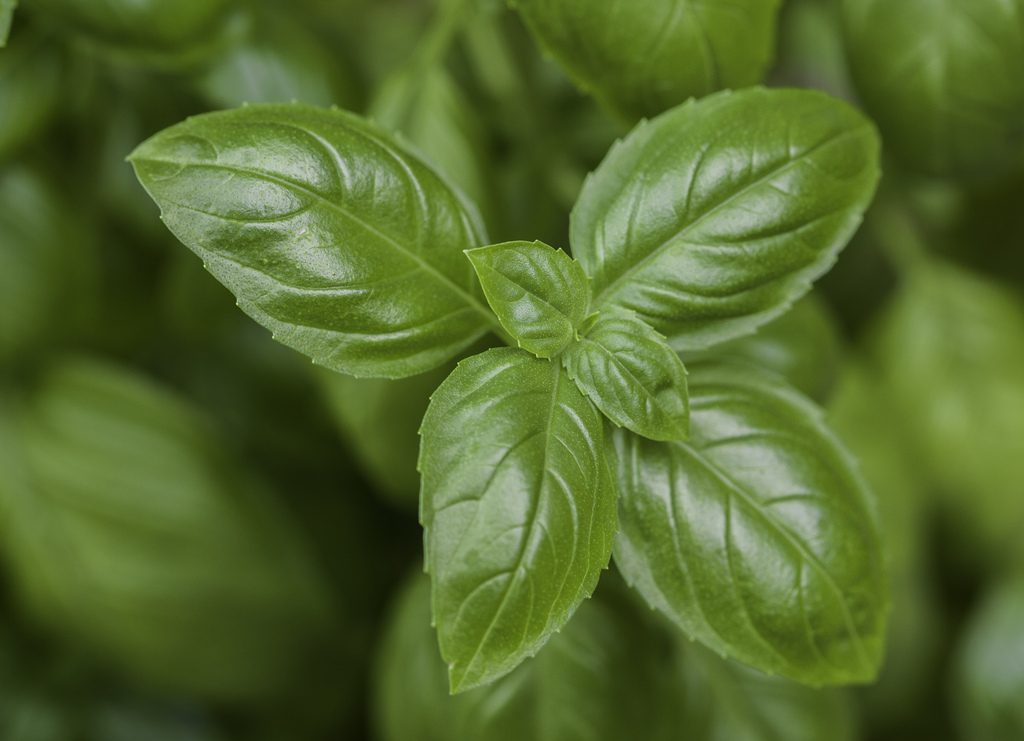
Lavender (Lavandula angustifolia)
Lavender is a genus of 39 known species of flowering plants. It has annual and short-lived herbaceous perennial plants. While leaf shape is diverse across the genus, they are normally covered in hairs, which contain the essential oils.
Lavender has a variety of uses. It is used as a component in many food and beverages. It also has medicinal uses ranging from: relief of painful conditions like migraines, tooth ache and joint pains, digestive problems, circulation disorders and aromatherapy.
Plant lavender in an open area that gets lots of sun and air circulation. It needs well-drained soil that has a slight alkaline between 6.7 and 7.3 pH levels. The plant also grows in the summer. Prune faded blooms lightly in order to encourage new growth.
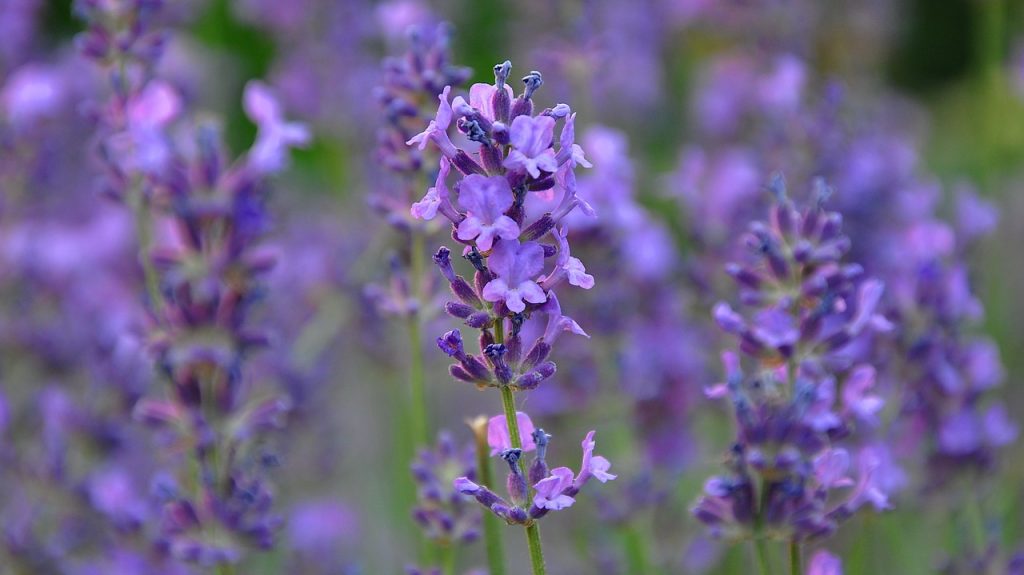
Marigold (Tagetes erecta)
Marigold are annuals that have the ability to bloom all summer. The plant has flowerheads that resemble a daisy or a double carnation. Its colours are gold, copper and brass.
The marigold has edible flowers that can be added to summer salads. In some dishes, it is used to get the colour of saffron. Unfortunately, it does not have the same taste. It is sometimes used to substitute French tarragon and can also be mixed in teas.
The plant needs lots of sunshine and thrive in soil that is moderately fertile and well-drained. When watering, it is best to do at the base of the plant and not from overhead. The plant does not need fertilizers and in fact, grows better in poor soil.
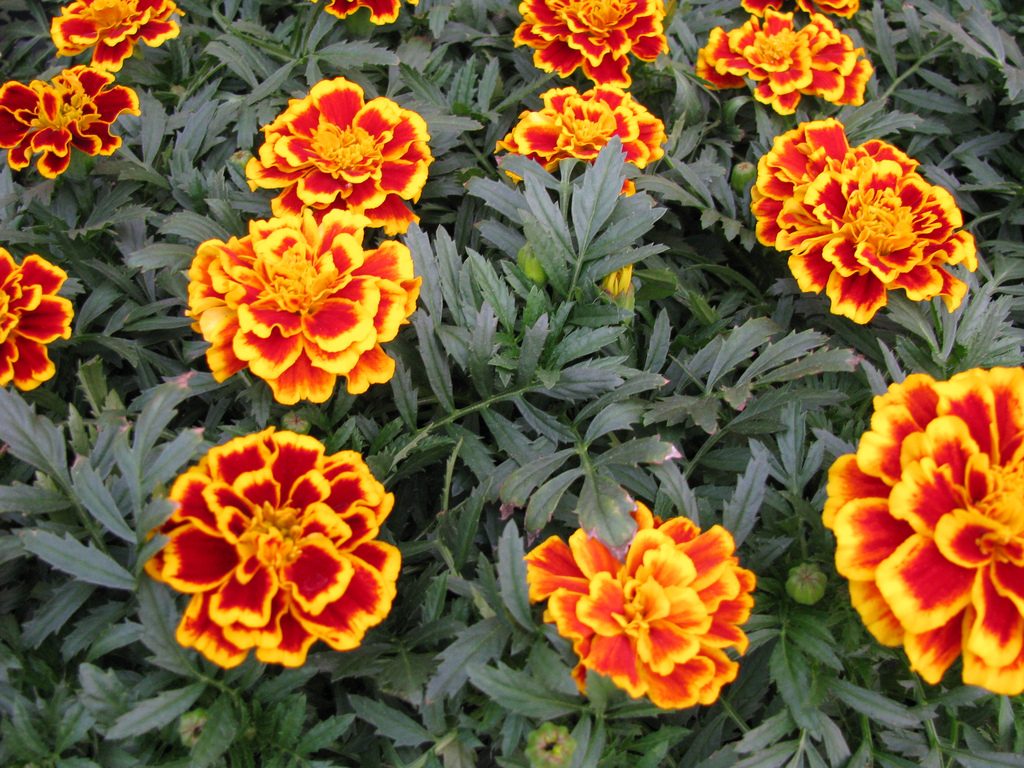
Mint (Mentha piperita)
The peppermint plant is a cross between watermint and spearmint, making it a hybrid mint. It is a perennial plant that has very green leaves and have a strong menthol flavour. It also has flowers that grow either purple, pink or white.
The peppermint has many uses. In cooking, mint brings a fresh taste to recipes it is used in. Meanwhile, a compress with mint leaves relieves a headache when applied to the forehead. Aside from mosquitoes, mice also dislike the smell of this plant.
Minimal care is needed for this type of herb. It grows well in water gardens and damp spots, but it can also survive in soil that is drier. The problem with mint is that it can easily overrun a planting bed.
To enjoy the strong flavor of the peppermint when harvesting, do it at midday when the concentration of the essential oils are said to be the strongest.
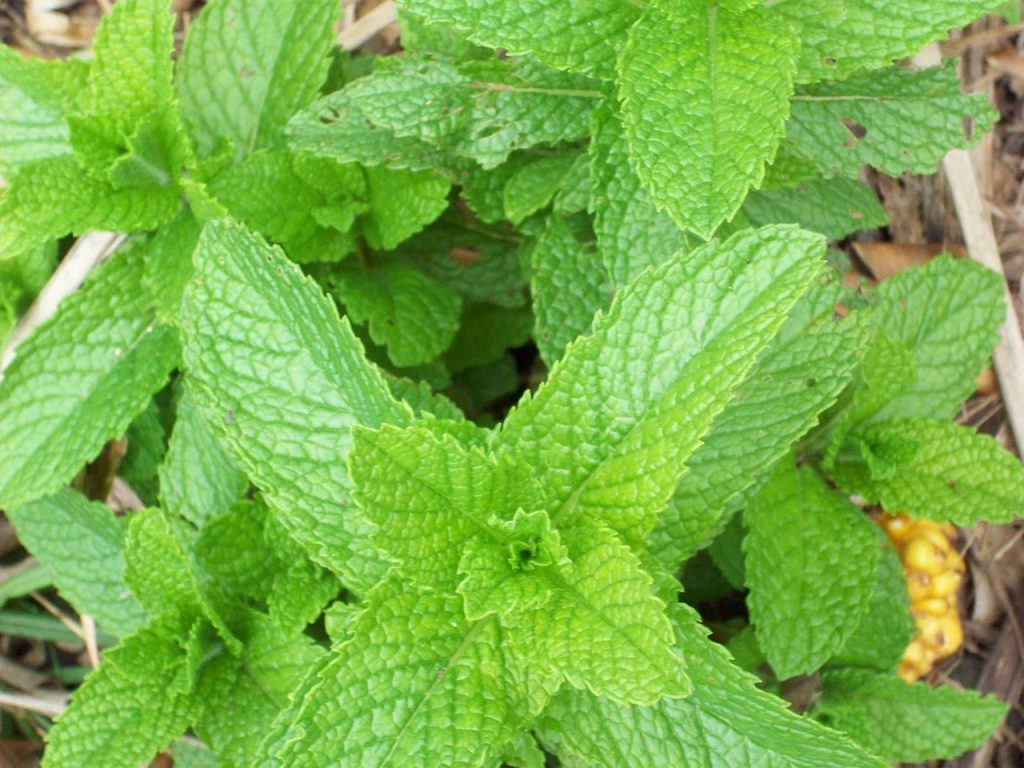
Rosemary (Rosmarinus officinalis)
Rosemary is a woody plant and its leaves look like needles. It is a fragrant perennial herb with white, pink, blue or purple flowers.
It is a decorative plant that can also be used in soups and stews. It is also used as stuffing for roasting meats such as poultry and lamb. Either fresh or dried, the leaves are also popular in Italian cuisine. The oils are also used in fragrances, incense, shampoo, bath and cleaning products due to its relaxing aroma.
Plant the seeds in well-drained soil. Trim the plant and prune regularly. During the winter, this plant can be grown indoors in small pots.
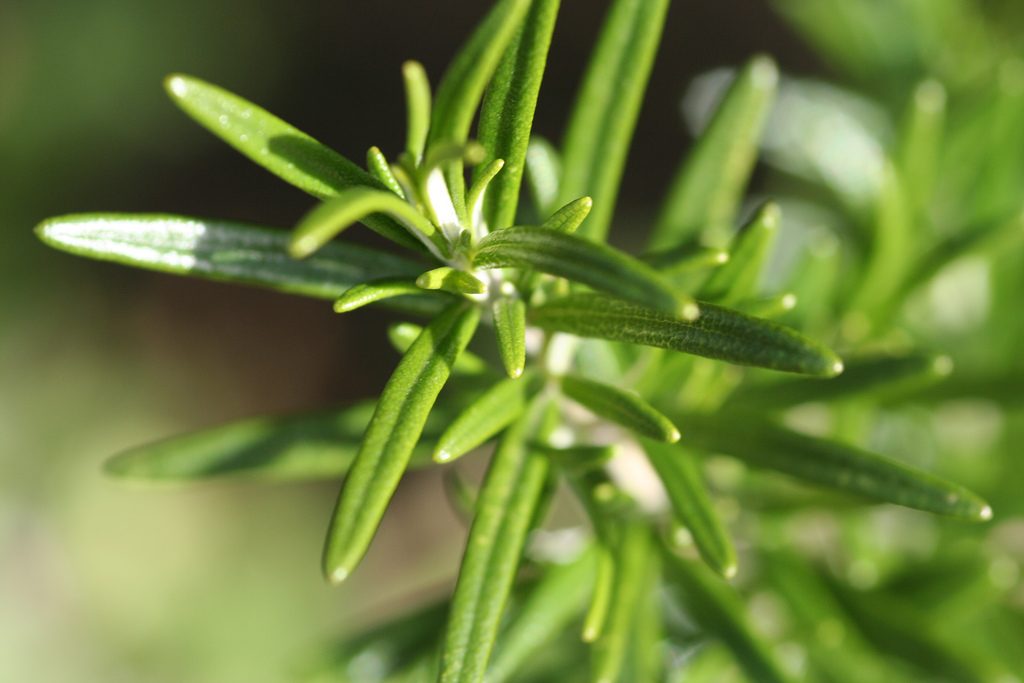
If anything can be gathered from the list above, it is that these plants are quite common and are already being used in households.
If you didn’t know before that these aromatics also ward off mosquitoes, then this article just gave you another reason to consider growing them.
If you know about other plants that make bugs and insects go away, share your comments below.
